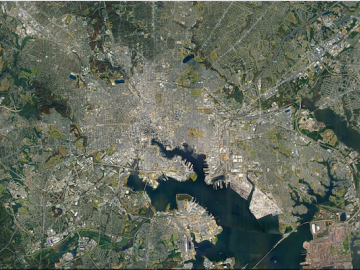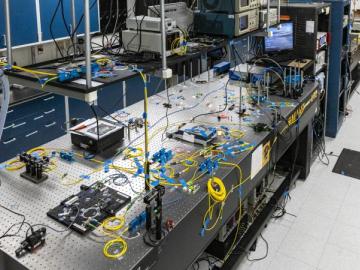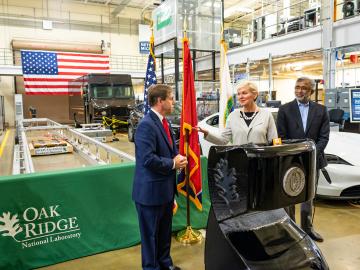Filter News
Area of Research
News Topics
- (-) Frontier (23)
- 3-D Printing/Advanced Manufacturing (34)
- Advanced Reactors (8)
- Artificial Intelligence (43)
- Big Data (21)
- Bioenergy (48)
- Biology (56)
- Biomedical (28)
- Biotechnology (10)
- Buildings (17)
- Chemical Sciences (21)
- Clean Water (14)
- Climate Change (46)
- Composites (5)
- Computer Science (80)
- Coronavirus (17)
- Critical Materials (1)
- Cybersecurity (14)
- Decarbonization (43)
- Education (1)
- Emergency (2)
- Energy Storage (28)
- Environment (100)
- Exascale Computing (24)
- Fossil Energy (4)
- Fusion (28)
- Grid (23)
- High-Performance Computing (42)
- Hydropower (5)
- Isotopes (25)
- ITER (2)
- Machine Learning (21)
- Materials (39)
- Materials Science (41)
- Mathematics (5)
- Mercury (7)
- Microelectronics (2)
- Microscopy (20)
- Molten Salt (1)
- Nanotechnology (16)
- National Security (33)
- Net Zero (8)
- Neutron Science (46)
- Nuclear Energy (52)
- Partnerships (13)
- Physics (26)
- Polymers (7)
- Quantum Computing (17)
- Quantum Science (27)
- Renewable Energy (1)
- Security (10)
- Simulation (29)
- Software (1)
- Space Exploration (12)
- Summit (30)
- Sustainable Energy (42)
- Transformational Challenge Reactor (3)
- Transportation (27)
Media Contacts

ORNL researchers are deploying their broad expertise in climate data and modeling to create science-based mitigation strategies for cities stressed by climate change as part of two U.S. Department of Energy Urban Integrated Field Laboratory projects.

A rapidly emerging consensus in the scientific community predicts the future will be defined by humanity’s ability to exploit the laws of quantum mechanics.

Energy Secretary Jennifer Granholm visited ORNL on Nov. 22 for a two-hour tour, meeting top scientists and engineers as they highlighted projects and world-leading capabilities that address some of the country’s most complex research and technical challenges.




